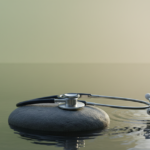As a pharmacist, I have spent years behind the counter filling prescriptions, answering questions, and giving quick consultations. Most of my days felt routine: scanning barcodes, checking drug interactions, and moving from one patient to the next. But one encounter changed the way I saw my profession forever.
It was a quiet afternoon when an elderly woman walked into the pharmacy. She handed me a prescription for blood pressure medication, but I could see the worry in her eyes. Her hands trembled as she spoke. “Doctor gave me these pills,” she said softly, “but I do not know if they will help. I feel weak all the time.”
At that moment, I could have simply filled her prescription and sent her on her way. But something stopped me. I invited her to sit down. I asked her about her meals, her sleep, and her routine. Slowly, she began to open up. She told me she lived alone, that her children were abroad, and that most days she skipped meals because she did not feel like cooking for herself. I realized then that her weakness was not just from hypertension, but from loneliness and poor nutrition. She did not just need pills; she needed someone to listen.
I explained her medication carefully, making sure she knew why it mattered. I also suggested simple changes she could make: eating a small breakfast, staying hydrated, and checking her pressure at home. But more importantly, I reassured her that she was not alone. Before she left, I wrote down my pharmacy’s phone number and told her to call anytime she had a concern.
A week later, she returned. This time, she was smiling. She told me she had started cooking again, even if just a small meal, and that she felt stronger. Her blood pressure was improving. But what touched me most was when she said, “Thank you for listening. You made me feel human again.”
That day I understood something profound: In health care, listening can be as powerful as any medicine we dispense.
In the rush of our daily work, it is easy to forget that behind every prescription is a person with fears, struggles, and stories. We may not always have the cure, but we always have the ability to care.
Health care today is often measured in numbers: blood pressure readings, blood sugar levels, lab reports. But compassion does not appear on a lab test. Human connection does not print out on a receipt. Yet, those are the things patients remember most.
Working in a pharmacy is not just about drugs and dosages. It is about building trust, giving hope, and being present in moments of vulnerability. That is what transforms a pharmacist from a dispenser of medication into a healer of hearts.
Whenever I feel tired at work, I think back to that woman. She reminded me that sometimes the smallest act (sitting down, listening, offering a kind word) can be the most important medicine we give.
As health care providers, we all have the power to make a difference, not just through our clinical knowledge, but through our humanity. And sometimes, all it takes is simply being willing to listen.
Maisoon Hasan is a pharmacist.



















![AI censorship threatens the lifeline of caregiver support [PODCAST]](https://kevinmd.com/wp-content/uploads/Design-2-190x100.jpg)

